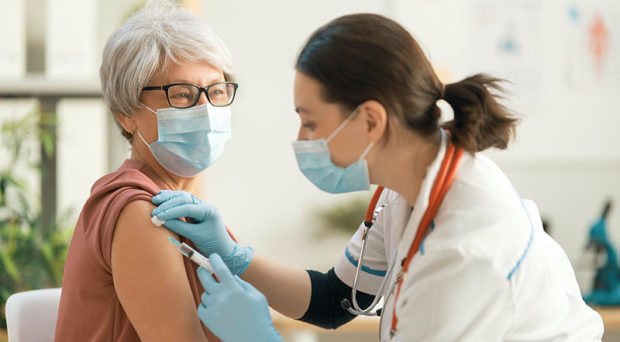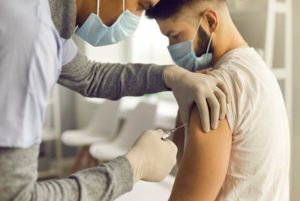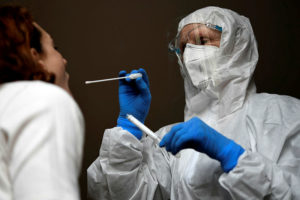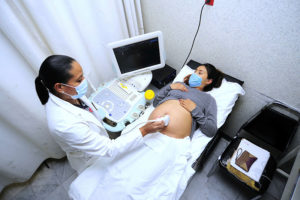
In our blog for Clinical Trials Day 2020 we summarized the COVID-19 studies that had been registered so far at the ISRCTN registry. One year later and there are now over 170 COVID-19 studies registered. In the first part of this blog we looked back at the results of the platform trials and a selection of the repurposed drug treatment trials that have launched since then. In the second part we look back at the results of the vaccine trials and studies looking at testing and the impact of COVID-19 on other conditions.
Vaccines
Multiple vaccines have been developed for COVID-19 around the world. The vaccine developed by the University of Oxford and AstraZeneca was tested in Phase I/II, Phase II/III and Phase III studies and the results confirmed that the vaccine was effective.
The AstraZeneca vaccine has been approved for use in many countries including the UK. Mass vaccination against COVID-19 started in the UK in early December 2020 and is likely to continue until mid-2021. The AstraZeneca vaccine is now being tested in a Phase II study in children.

Other candidate vaccines are being tested in the COVAC1, CROWN CORONATION and ENSEMBLE 2 trials. There are also vaccines in development from Valneva and the University of Queensland. The safety of all of the vaccines is being monitored by the VAC4COVID study initially launching in the UK and by the ZVAC study in Switzerland.
The COV-COMPARE study is comparing the immunogenicity of two doses of the AstraZeneca and Valneva vaccines, while the Com-COV and Com-COV2 studies are comparing different combinations of vaccines (e.g. the AstraZeneca and the Pfizer-BioNTech vaccines) for the prime and boost doses, as well as comparing 4-week and 12-week intervals between doses.
The duration of protection of the current vaccines is unknown and further booster doses may be needed in 9 to 12 months’ time, which may coincide with seasonal influenza vaccination. Delivering COVID-19 and influenza vaccines at separate appointments will cause significant logistical challenges, so the ComFluCOV trial is determining the safety and immune response when both vaccines are given in different arms at the same appointment.

Testing
Testing has proven to be key for containing the spread of the virus. The results of the CoV-19POC study showed that a new point-of-care test for COVID-19 provides results more quickly and could lead to improved infection control measures and patient flow compared with centralised laboratory PCR testing.
In England and Wales infection rates in care homes have been as high as 80% and mortality rates as high as 30-50%. The VIVALDI study is carrying out repeat testing (antigen and antibody) of care home staff and residents and the CONTACT feasibility study is looking at whether wearable digital devices can help improve contact tracing in care homes.
Now schools have reopened in the UK containing the virus poses a particular challenge due to asymptomatic cases, the high number of contacts, the presence of vulnerable persons, and the potential for transmission to family contacts of children and staff. In the CoMMinS study researchers are mapping COVID-19 infection in participating schools with saliva tests, environmental swabbing and analysis of wastewater.

Impact on other conditions
The UKOSS study collected information about pregnant women admitted to hospital with COVID-19 in the UK and the results showed that most had good outcomes and that transmission to infants was uncommon. However, the authors also concluded that the high proportion of women from black or minority ethnic groups admitted with infection requires urgent investigation.
Studies are also looking at the immune responses to COVID-19 and/or vaccination in patients with chronic health conditions and immunocompromised patients such those with cancer and inflammatory bowel disease (IBD) treated with immunosuppressive or biologic drugs.
In the last year we have also published blogs on heart disease and COVID-19, the brain complications of COVID-19, and digital self-management for people living with cancer during the pandemic.
The take-home message
The ISRCTN registry continues to support global research on COVID-19 by giving priority to prompt registration and reporting of COVID-19-related studies. All registered studies are made available worldwide through the WHO’s International Clinical Trials Registry Platform (ICTRP), and all UK studies appear on Be Part of Research.
Comments